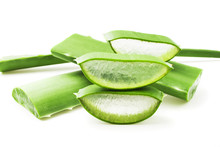IS ALOE VERA REALLY GOOD FOR YOUR SKIN?
 From Andrew- Is Aloe Vera fabulous for the skin? Aloe VeraWell Andrew, that’s a good question, even so the answer depends upon which team you ask. There are a variety of naturopathic healers who recommend its use to manage a variety of conditions which range from sunburns, psoriasis, osteoarthritis, high cholesterol levels, to your cure for striae. It can be seen in hundreds of skin products that happen to be acquireable, usually such as lotions and sunblocks. The ancient Egyptians were using Aloe Vera since 4,000 BC where it turned out referred to as the “plant of immortality”. Medical doctors have some other opinion for the matter. If you're ought to them about purposes of Aloe, the response would most likely be, “there isn’t enough scientific evidence to indicate it’s a fair strategy to anything”. Given the big amount of products available and anecdotal evidence seemingly supporting its use, I’m one medical expert that finds it problematical to argue Aloe doesn’t act on all, but let’s go through the evidence. There are two substances the Aloe Vera plant produces that happen to be used as medicines- gel and latex. The gel may be the clear, jelly-like stuff within the center with the plant’s leaves. Surrounding the gel, just below the plant’s skin, is really a yellow material generally known as latex. There are some medicines which are made out of the full crushed leaf that incorporate both gel and latex, but generally latex is taken orally along with the gel is usually used topically. Although some claim taking gel orally has benefits. The Aloe gel itself contains glycoproteins and polysaccahrides. Glycoproteins are well-known to help out with healing by reducing inflammation and stopping pain. Polysaccahrides ease skin growth and repair. It’s also considered that both of these substances help stimulate the defense mechanisms. It doesn’t come off as too farfetched then to believe an array of functions for different diseases and scenarios. Many people keep bold claims due to these factors inside the plant. The scientific research, however, have established many contradictory results, prompting most governing medical bodies to classify Aloe’s use as “needing more evidence” before they may endorse it. The National Center for Complementary and Alternative Medicine (NCCAM) lists only two recognized benefits associated with Aloe. The first is as being a laxative. That being said, the FDA familiar with allow the usage of oral Aloe latex being a laxative, but suspended it in 2002 because animal studies showed high doses may cause cancer. This is often a real concern given it takes increasing doses after some time to own desired affects. The second benefit is like a topical gel to help heal burns and abrasions. They are quick to indicate, however, that some research has shown the gel might just inhibit the healing of deep surgical wounds. As such, really the only FDA approved using Aloe is as being a natural food flavoring.
From Andrew- Is Aloe Vera fabulous for the skin? Aloe VeraWell Andrew, that’s a good question, even so the answer depends upon which team you ask. There are a variety of naturopathic healers who recommend its use to manage a variety of conditions which range from sunburns, psoriasis, osteoarthritis, high cholesterol levels, to your cure for striae. It can be seen in hundreds of skin products that happen to be acquireable, usually such as lotions and sunblocks. The ancient Egyptians were using Aloe Vera since 4,000 BC where it turned out referred to as the “plant of immortality”. Medical doctors have some other opinion for the matter. If you're ought to them about purposes of Aloe, the response would most likely be, “there isn’t enough scientific evidence to indicate it’s a fair strategy to anything”. Given the big amount of products available and anecdotal evidence seemingly supporting its use, I’m one medical expert that finds it problematical to argue Aloe doesn’t act on all, but let’s go through the evidence. There are two substances the Aloe Vera plant produces that happen to be used as medicines- gel and latex. The gel may be the clear, jelly-like stuff within the center with the plant’s leaves. Surrounding the gel, just below the plant’s skin, is really a yellow material generally known as latex. There are some medicines which are made out of the full crushed leaf that incorporate both gel and latex, but generally latex is taken orally along with the gel is usually used topically. Although some claim taking gel orally has benefits. The Aloe gel itself contains glycoproteins and polysaccahrides. Glycoproteins are well-known to help out with healing by reducing inflammation and stopping pain. Polysaccahrides ease skin growth and repair. It’s also considered that both of these substances help stimulate the defense mechanisms. It doesn’t come off as too farfetched then to believe an array of functions for different diseases and scenarios. Many people keep bold claims due to these factors inside the plant. The scientific research, however, have established many contradictory results, prompting most governing medical bodies to classify Aloe’s use as “needing more evidence” before they may endorse it. The National Center for Complementary and Alternative Medicine (NCCAM) lists only two recognized benefits associated with Aloe. The first is as being a laxative. That being said, the FDA familiar with allow the usage of oral Aloe latex being a laxative, but suspended it in 2002 because animal studies showed high doses may cause cancer. This is often a real concern given it takes increasing doses after some time to own desired affects. The second benefit is like a topical gel to help heal burns and abrasions. They are quick to indicate, however, that some research has shown the gel might just inhibit the healing of deep surgical wounds. As such, really the only FDA approved using Aloe is as being a natural food flavoring.